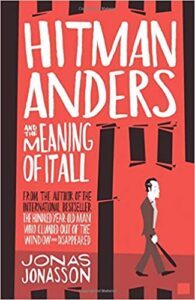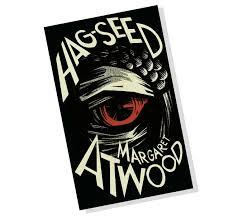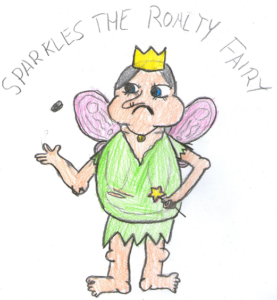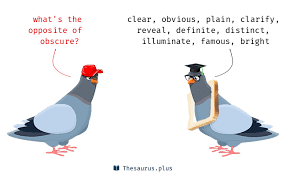Felix Long's Blog, page 3
September 5, 2020
In my father’s name …
 When my dad died in February of this cursed year of our Lord 2020 he really was just leaving early to avoid the traffic. And being a practical joker by nature, he didn’t nominate a next of kin. So his family did not know he had died for three weeks until the police could piece together the tiny clues he left behind in his squalid Glasgow tenement flat.
When my dad died in February of this cursed year of our Lord 2020 he really was just leaving early to avoid the traffic. And being a practical joker by nature, he didn’t nominate a next of kin. So his family did not know he had died for three weeks until the police could piece together the tiny clues he left behind in his squalid Glasgow tenement flat.
In a way, that was his gift to me. Being able to piece together tiny clues. And just like any true Celtic gift it is also has a left hand curse, the inability to keep those clues to one’s self.
It was our thing. To watch TV together and to race each other to guess the end. He could spot the storytelling clues. He taught me how to do so as well. Unfortunately, I never learned how to keep those insights to myself.
A memory from childhood: watching TV with my younger siblings. There was a scene where a woman was pacing on the edge of cliff. The scene was shot from one foot above worm’s eye level. And the back score was creepy.
“She’s going to fall off the cliff.” Nine year old me said.
She did.
Siblings looked at me in shock as though I was a soothsayer. “How did you know?”
This irritating super power is just a love of storytelling and understanding the components that make it work.
Sadly, when you peel back the layers, you dull the magic, but you replace it with wisdom.
Those sessions in front of the TV with my dad, watching the A-team and McGuyver and Knight Rider, were infuriating to those who had to sit through them with us, but to dad and me they were how we gained a greater insight into the story teller’s craft. Such as spotting Checkov’s Gun.
Anton Checkov was a Russian novelist and playwright. He came up with is a classic literary rule – if someone is shot in the third act, the gun has to be on the mantelpiece in the first act.
In practice, Chekov’s gun is an object introduced early in the story that will become useful (or even central) later in the plot. You are warned. Once you spot the trope you can never unsee it.
Recently, my dearest and I were watching the Umbrella Academy. Unwittingly I was playing out that old dynamic I had going with my Dad in spotting the TV dynamics. Unfortunately, I still lack that wisdom to keep my darn mouth shut.
Mostly I kept my soothsaying to a round up of the current episode during the credits on why this character had done this, and why that character had said that, and what I thought would happen in the next episode.
It is a great credit to the writers of the Umbrella Academy that I was only 80% right in my predictions. The other 20% were skilful misdirections that were thoroughly engaging.
Unfortunately, my dearest was certain that I had read the story on line and was just artfully destroying the fun with well-placed spoilers. And would not be dissuaded by my assurances to the contrary.
My dad was also hard to live with. And for similar reasons.
Apologies are insufficient, but the lessons learned are a peek behind that curtain where the Wizard of Oz is just a guy with a mega phone, and a gun belonging to Checkov.
So tell me please, what are ways in which your father’s influence shaped you as a person?
Replies please to felixlong (at) gmail (dot) com.
August 15, 2020
The Good People
 In my current attempts to find an agent for Habnab I keep running up against the same request – list books similar to yours.
In my current attempts to find an agent for Habnab I keep running up against the same request – list books similar to yours.
This sounds easy right? But, without giving too much away about Habnab, I found the answer to this request very elusive. If, as an author, your goal is to produce something familiar yet unique, its hard to find books similar to yours and convince the gatekeepers to let you in.
Hannah Kent’s ‘The Good People’ is one of the books I am using as an example of a book similar to Habnab in that they share the same antagonist – the fae.
The fae of folklore are a people indigenous to Ireland who were forced to flee from invading humans. The fae are famous in folklore for taking a beautiful child and replacing it with one of theirs in disguise. This changeling child could be either an infant fae to be loved and raised in the manner of the cuckoo, or an elderly fae who is sent to the humans as a form of palliative care by deceit.
‘The Good People’ deserves its praise. The language is lyrical but flows without becoming overpowering. The main characters are painted in a sympathetic light through close attention to detail that spells out their plight, women at the margins of Irish rural societies in the 1800s and thus natural scapegoats of small town suspicion.
The book is a fictional telling of an historical event, where a child died during a ritual aimed at ‘putting the fairy out of him’. A strongly held belief that the fae are real people who live as unseen neighbours and are easily offended, vengeful and strong.
These folk tales of fae and their changeling offspring are common to many ancient European cultures. Irish, Scottish, Icelandic and Germanic all have tales very similar in form and theme to those cleaned up versions told by the brothers Grimm at a similar point in time in which ‘The Good People’ is set.
The dreadful irony for the characters is this … the time in which they lived was effectively the good years … the potato famine was still 25 years off.
‘The Good People’ tells a microcosm tale set neatly within a historical and cultural macrocosm of Catholic versus Protestant, pagan versus Christian, lettered powerful men versus illiterate powerless women.
August 1, 2020
Comedy, metaphysics and a suitcase full of cash
 I have just read the final (I hope not) Jonas Jonasson book Hitman Anders and the Meaning of it all. I have been a fan of Jonas Jonasson ever since I happened upon his debut The One Hundred Year Old Man who Climbed out of the Window and Disappeared.
I have just read the final (I hope not) Jonas Jonasson book Hitman Anders and the Meaning of it all. I have been a fan of Jonas Jonasson ever since I happened upon his debut The One Hundred Year Old Man who Climbed out of the Window and Disappeared.
Never before had I read a tag line as the actual title of the book. Must have been quite the annoyance to those tasked with updating bibliographic and retail databases. But it served ‘what it says on the tin’ logic perfectly.
Having now read all the way to the (current) end of Mr Jonasson’s works I can see that his formula is a very successful one with common themes: redemption in the face of nihilistic pointlessness, persistence with the absurd in the face of logic, and … a McGuffin.
A McGuffin is an object in a film or book which serves as a plot trigger. Whilst central to the story, each of Jonasson’s McGuffins: a suitcase full of cash, a stash of plutonium, or an entire nuclear bomb, kept his meandering comedic every(wo)man anti-heroes stumbling or actively questing toward their respective goals.
There is a little-known law in literature that in horror, the main character gets what they deserve, but in comedy, the main character gets what they need. One of the cool things about Jonas Jonasson is that he absolutely ignored that rule and it all worked out fine in the end.
Hitman Anders is sick of being a hitman. But unfortunately he is quite good at it.
Johanna Kjellander, a disgraced priest, is the fallen angle to Hitman Anders redeeming devil.
And the unfortunately named Per Persson (subject of a very cheeky fourth wall break) is the receptionist at the grotty hotel where they all meet. He spends the book mostly wondering what the heck is going on.
Jonasson’s writing is all the more lovely for the idiosyncrasies it retains from its translation from Swedish to English. The characters are well rounded and the action never settles in one spot for too long. A very enjoyable read and a small pill to remedy the gloom of our current times.
I hope you enjoy Hitman Anders and the Meaning of it All.
July 22, 2020
Timely warning to writers
 Don’t neglect the daily walk.
Don’t neglect the daily walk.
I recently got out to see the film Shirley, a fictional biopic of writer Shirley Jackson, most famous for her short story The Lottery. Shirley was also a prolific novelist and essayist and one of the people I think of guiltily whenever I am having that ‘oh I’m just too busy to write’ moment.
“I am a writer who, due to a series of innocent and ignorant faults of judgement, finds herself with a family of four children and a husband, an eighteen-room house and no help, and two Great Danes and four cats … it’s a wonder I get even four hours’ sleep, it really is.”
Shirley Jackson
Well if Shirley can bash out six novels, two memoirs, over 200 short stories and birth the genre of psychological horror in addition to the above, then what’s stopping me?
When heading to see this film I stopped at my local library to pick up one of her novels. I randomly chose Hangsaman. Imagine my surprise to find that the film is a meta-story with the writing of that very book at its centre.
The film is very much worth tracking down if you can. Its release (like most films at the moment) is limited. I found the cinematography particularly elegant. A shot of airborne bonfire embers merging with snowflakes was a particularly arresting image. The capture of significant looks from an eye framed by the arm of eyeglasses. Shirley, languid and haggard, chain-smoking in her bed paralysed by agoraphobia and writer’s block.
Characterisation in this film was also excellent. Elisabeth Moss is a fine choice to play Shirley. Both for her engaging depiction of a woman treading the artistic tightrope between brilliance and madness and for her physical resemblance to the writer herself. Certainly a heck of a lot better than Nicole Kidman in her prosthetic nose pretending to be Virginia Wolff.
Another of my takeaways from this film was the kind, yet realistic, depiction of the ageing female form. I found it leant gravitas to Elisabeth Moss’ performance and a layer of vulnerability to Shirley’s savage but brittle ego.
All in all, it was a fine cautionary tale to all budding authors out there. Please don’t neglect the daily walk, even in pursuit of the maddening genius that just might define your life’s contribution to the arts. The daily walk gently undoes the damage caused by the sedentary lifestyle of the writer and the lightens the mental load.
It’s okay to keep company with the black dog. But if you don’t walk it daily, it just might turn on you.
July 13, 2020
Hogarth Shakespeare – World’s poshest fan fiction
 The Hogarth Shakespeare series consists of eight Shakespearean plays retold by modern masters.
The Hogarth Shakespeare series consists of eight Shakespearean plays retold by modern masters.
I recommend this series specifically to those who were forced to read Shakespeare in school and were put off by the ‘ye olde’ language.
Hagseed is Margaret Atwood’s retelling of The Tempest.
Atwood re-imagines The Tempest as a play set in a prison. This play is directed by Felix Phillips, theatre director extraordinaire as a slow moving instrument of revenge against those who have wronged him. I found this version of The Tempest to be both timidly faithful and wickedly adulterous.
Felix Phillips is the high-flying, cloud-capped tower scaling genius impresario who leaves the mundane running of the Makeshiweg Theatre Festival to his ambitious second in command, Tony. Tony pulls a coup d’état and pitches Felix out into the snow before Felix can realise his finest production yet, the Tempest.
Chewing on his failures, misery and betrayal, Felix plots his slow burning revenge against Tony and his cronies. His chosen vehicle of hubris delivery is the very play that Tony canned, staged twelve years later in a prison as part of a program to improve literacy skills amongst inmates.
But before Felix can enact his revenge he has to wrangle his motley crew of players. And in their untapped talents he finds lessons to learn as well as to teach.
Atwood does not shy away from the darker themes of the Tempest in her usual inimitable style. And her ghost constructed of Felix’s memories of his own lost daughter Miranda is deeply poignant.
July 8, 2020
English – it’s hard enough as a first language
 English is not easy.
English is not easy.
1) The bandage was wound around the wound.
2) The farm was used to produce produce.
3) The dump was so full that it had to refuse more refuse.
4) We must polish the Polish furniture.
5) He could lead if he would get the lead out.
6) The soldier decided to desert his dessert in the desert.
7) Since there is no time like the present, he thought it was time to present the present.
8) bass was painted on the head of the bass drum.
9) When shot at, the dove dove into the bushes.
10) I did not object to the object.
11) The insurance was invalid for the invalid.
12) There was a row among the oarsmen about how to row.
13) They were too close to the door to close it.
14) The buck does funny things when the does are present.
15) A seamstress and a sewer fell down into a sewer line.
16) To help with planting, the farmer taught his sow to sow.
17) The wind was too strong to wind the sail.
18) Upon seeing the tear in the painting I shed a tear.
19) I had to subject the subject to a series of tests.
20) How can I intimate this to my most intimate friend?
Let’s face it – English is a crazy language. There is no egg in eggplant, nor ham in hamburger; neither apple nor pine in pineapple. English muffins weren’t invented in England or French fries in France. Sweetmeats are candies while sweetbreads, which aren’t sweet, are meat. We take English for granted. But if we explore its paradoxes, we find that quicksand can work slowly, boxing rings are square and a guinea pig is neither from Guinea nor is it a pig.
And why is it that writers write but fingers don’t fing, grocers don’t groce and hammers don’t ham? If the plural of tooth is teeth, why isn’t the plural of booth, beeth? One goose, two geese. So one moose, two meese? One index, two indices? Doesn’t it seem crazy that you can make amends but not one amend? If you have a bunch of odds and ends and get rid of all but one of them, what do you call it?
If teachers taught, why didn’t preachers praught? If a vegetarian eats vegetables, what does a humanitarian eat? Sometimes I think all the English speakers should be committed to an asylum for the verbally insane. In what language do people recite at a play and play at a recital? Ship by truck and send cargo by ship? Have noses that run and feet that smell?
How can a slim chance and a fat chance be the same, while a wise man and a wise guy are opposites? You have to marvel at the unique lunacy of a language in which your house can burn up as it burns down, in which you fill in a form by filling it out and in which, an alarm goes off by going on. And when the stars are out, they are visible, but when the lights are out, they are invisible.
English … hard enough as a first language. Please be kind to those trying to learn it as their second or even third!
July 4, 2020
What is family?
 How ironic to be reading a story about a child from a leper colony during the COVID lockdown.
How ironic to be reading a story about a child from a leper colony during the COVID lockdown.
What impressed me most about Beyond the Bright Sea by Lauren Wolk was its timelessness. It could have been set pretty much any time in the last hundred years.
The story’s protagonist is a plucky young foundling called Crow after the feather shaped birth mark on her cheek. She is raised on the wild island of Cuttyhunk near Massachusetts by Osh, the man who found her as an infant washed up in a tiny boat with an antique ring and a note.
The other islanders are memorable characters. Miss Maggie leads the life of a duchess gone wild. Osh fishes and paints and is very quiet about his past.
This is a story about outcasts banding together to solve a mystery. Of identity and self-discovery. And of practical fears over contagion held by otherwise kindly folk.
Crow seeks her roots in the abandoned leper colony on a neighbouring island. As her investigations bring tantalising clues she risks drifting away from her adoptive family who know that you don’t always find the answers you go looking for.
This book has a very lyrical quality and its landscape and seascape depictions are crisp and as well drawn as one of Osh’s own paintings.
June 13, 2020
Cinderella Syndrome
 Cinderella Syndrome is an author specific application of Imposter Syndrome.
Cinderella Syndrome is an author specific application of Imposter Syndrome.
Imposter Syndrome
[n.] [coll.]
Feelings of inadequacy that persist despite evident success.
The propensity to attribute success to luck instead of one’s own efforts.
Imposter Syndrome is bad.
The all-pervading sense that you do not deserve to succeed. That squirrelling whiney voice of self-doubt that far exceeds its usefulness during the beta editing process. That horrid thief of success that gradually whittles away your ambition.
But Cinderella Syndrome is worse.
Cinderella Syndrome
[n] [coll.]
The urge to preserve the illusion of wealth in the hope it will come true.
Cinderella Syndrome makes willing slaves of very clever people. People just like you.
Cinderella was a frocked up scullery maid impersonating a princess hoping to snare a lottery win, in the form of a marriage proposal from a prince.
She must have been so scared that the fairy godmother’s glamour would slip, just an inch, and expose her as a fraud before she could secure her hooks in his heart. At which point the trifling matter of her origins would become irrelevant.
Cinderella’s summoned ball gown confers upon her a status she has not earned. Until midnight, that pinwheeling faux-princess could dance and dance in the company of her betters, attaining a social status previously impossible but for that shower of pixie dust from her fairy godmother’s wand.
I don’t know you. We’ve only just met. But I do know this. When introduced to someone and asked, “What do you do?” you want to be able to answer, “I’m an author.”
Cue, confetti cannon.
It hurts to disabuse people of the notion that because you are an author you are rich. And sadly, the status that author-hood confers is dependent upon the false perception of the riches publication brings.
In order to fight the latter, you must let go of the former.
May 24, 2020
Introductions and interviews
 Folks, I am in danger of losing my obscurity.
Folks, I am in danger of losing my obscurity.
Yesterday I had the extraordinary pleasure of meeting musicians Nate and Maria Hamon and being interviewed for their podcast Tonic Pop.
This comes hard on the heels of my first ever interview with the lovely Ky Garvey of Totally Lit. I shared the stage with Teena Raffa-Mulligan and much enthusiastic discussion was had!
My own grand entrance is around the 26:30 mark.
Please tune in and enjoy!
May 16, 2020
Disinterested
 A place of grievance airing
A place of grievance airing
A tribe of counsel sharing
Measure of country fairing
All gowns and wigs a-wearing.



